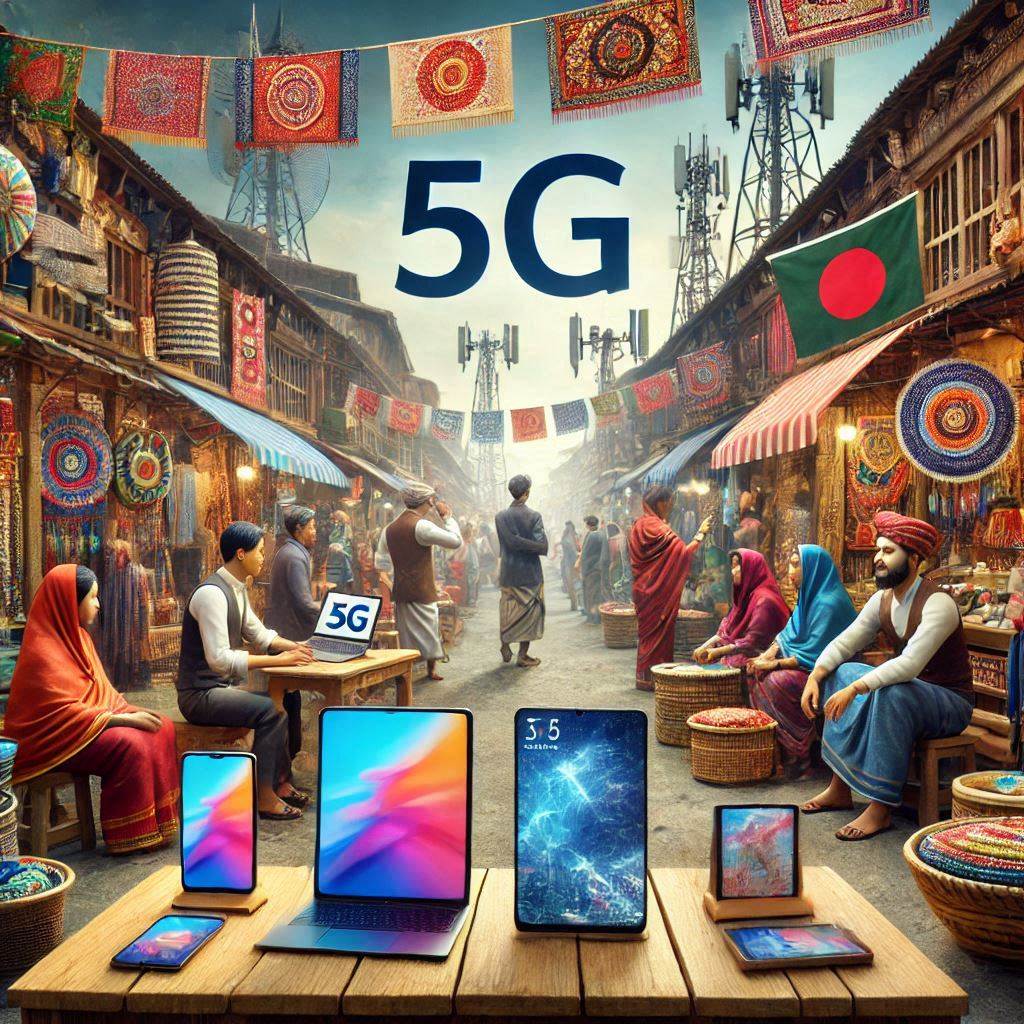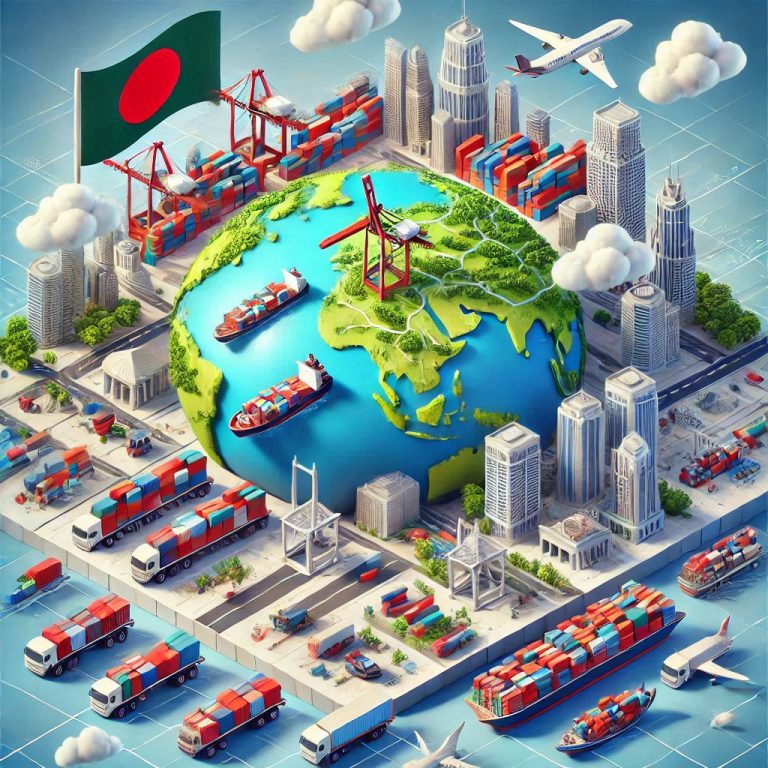
The rollout of 5G technology in Bangladesh has heralded a new era of connectivity and innovation, bringing with it a wide array of products designed to harness the capabilities of this advanced network. From smartphones and routers to IoT devices and industrial solutions, 5G-enabled products are transforming the way individuals and businesses operate. This article provides a comprehensive overview of all major 5G products currently available or emerging in Bangladesh, highlighting their features, applications, and market impact.
Smartphones: The Pioneers of 5G Connectivity.
Smartphones are among the first consumer products to adopt 5G technology. In Bangladesh, the demand for 5G-enabled smartphones has grown steadily as telecom operators expand their 5G coverage. Leading global and local brands have introduced models that cater to various price ranges and user needs.
Popular 5G Smartphone Models in Bangladesh.
Samsung Galaxy Series.
Models such as Galaxy S21 Ultra, Galaxy A52 5G, and Galaxy Z Fold3 support 5G networks and offer high-speed connectivity, superior cameras, and enhanced battery life.
Price Range: Mid-range to premium:
Xiaomi Mi and Redmi Series.
Xiaomi’s Mi 11X Pro and Redmi Note 11 Pro+ 5G are affordable options with powerful processors and 5G compatibility.
Features include fast charging, high refresh-rate displays, and AI-powered cameras.
Apple iPhone Series.
iPhone 12 and iPhone 13 models come with 5G capability, providing seamless performance for productivity and entertainment.
Price Range: Premium:
OnePlus and Oppo.
Brands like OnePlus (Nord CE 2 5G) and Oppo (Reno 6 5G) offer stylish and performance-driven options for Bangladeshi consumers.
Features include AI enhancements, gaming optimizations, and fast connectivity.
Local Brands.
Bangladeshi manufacturers such as Walton are stepping into the 5G market with budget-friendly models tailored to local preferences.
5G Routers and Modems: Enabling High-Speed Connectivity.
5G routers and modems are essential for businesses and homes requiring high-speed internet access. These devices provide an alternative to traditional broadband connections, offering flexibility and portability.
Key 5G Router Models in Bangladesh.
Huawei 5G CPE Pro 2.
Features high-speed internet for home and office use, with support for multiple devices.
Known for its compact design and reliability.
Netgear Nighthawk M5.
A premium portable 5G router ideal for remote work, travel, and small offices.
Offers robust security features and excellent performance.
TP-Link Deco X80-5G.
Combines 5G connectivity with Wi-Fi 6 technology, providing seamless coverage and high speeds.
Supports smart home integrations and parental controls.
Wearable Devices: Redefining Mobility with 5G.
Wearable technology is another area where 5G is making an impact. Smartwatches, fitness trackers, and AR/VR headsets are increasingly integrating 5G to enhance user experiences.
Popular 5G Wearables:
Apple Watch Series.
The Apple Watch Series 7 supports 5G through paired iPhones, enabling faster app performance and data syncing.
Samsung Galaxy Watch 4.
A versatile smartwatch that leverages 5G for fitness tracking, health monitoring, and seamless communication.
AR/VR Headsets.
Devices like Oculus Quest 2 are expected to integrate 5G for immersive gaming and virtual experiences in the future.
Internet of Things (IoT): Building Smart Ecosystems.
The Internet of Things (IoT) is one of the most significant beneficiaries of 5G technology. In Bangladesh, the adoption of IoT devices is growing in both urban and rural areas, driven by the enhanced connectivity and scalability of 5G.
IoT Products Leveraging 5G.
Smart Home Devices.
5G-enabled smart lights, security cameras, and thermostats offer real-time control and automation.
Brands like Xiaomi and TP-Link are popular in this segment.
Connected Appliances.
5G-powered refrigerators, washing machines, and air conditioners enable remote monitoring and energy optimization.
Agricultural IoT.
Smart irrigation systems, soil sensors, and drones are being deployed in Bangladesh’s agricultural sector to enhance productivity and resource management.
Industrial IoT (IIoT).
Manufacturing facilities are adopting 5G-enabled IoT solutions for real-time monitoring, predictive maintenance, and automation.
Enterprise Solutions: Transforming Business Operations.
5G is revolutionizing enterprise solutions by enabling faster communication, better analytics, and innovative applications. Businesses in Bangladesh are exploring the following 5G products:
Cloud Computing and Edge Devices.
Edge Computing Solutions: Devices like HPE Edgeline and Cisco Edge platforms use 5G to process data closer to the source, reducing latency and improving efficiency.
Cloud Services: Companies leverage 5G for faster data transfer to cloud servers, enhancing collaboration and operational agility.
Unified Communication Tools.
Video conferencing systems like Cisco Webex and Zoom are optimized for 5G, providing seamless virtual meeting experiences.
Augmented Reality (AR) tools for training and collaboration are gaining traction in sectors like healthcare and manufacturing.
5G in Transportation: Driving Innovation on the Move.
The transportation sector in Bangladesh is beginning to adopt 5G technologies to improve efficiency and safety. Key applications include:
Connected Vehicles.
5G-enabled cars with features like real-time navigation, vehicle-to-vehicle communication, and autonomous driving.
International brands such as Tesla are influencing the local market.
Smart Public Transport.
5G systems enhance fleet management, passenger information, and ticketing in buses and trains.
Drones.
Delivery drones and surveillance drones powered by 5G are being piloted in various industries.
Challenges to 5G Product Adoption in Bangladesh.
While 5G-enabled products have great potential, there are challenges to their widespread adoption in Bangladesh:
Affordability: Many 5G devices are priced beyond the reach of average consumers.
Infrastructure: Limited 5G coverage restricts the functionality of these products.
Awareness: Consumers need education on the benefits and uses of 5G-enabled products.
Local Production: Dependence on imported products increases costs and limits customization for the local market.
The Future of 5G Products in Bangladesh.
As 5G networks expand, the range of products and their applications will continue to grow. Emerging trends include:
Affordable 5G Smartphones: Local manufacturers are expected to play a key role in bringing cost-effective options to the market.
Advanced IoT Devices: Innovations in smart cities, healthcare, and agriculture will drive demand for specialized IoT products.
AR/VR Expansion: Enhanced connectivity will popularize AR/VR solutions for entertainment, education, and training.
Green Technology: 5G will enable energy-efficient products that align with Bangladesh’s sustainability goals.
Conclusion.
The introduction of 5G technology in Bangladesh is opening doors to a new world of possibilities, with a diverse array of products catering to consumer, enterprise, and industrial needs. While challenges remain, the collaborative efforts of the government, telecom operators, and technology providers are paving the way for a brighter, more connected future. By embracing 5G-enabled products, Bangladesh can unlock its potential for innovation and economic growth, establishing itself as a leader in the digital age.





